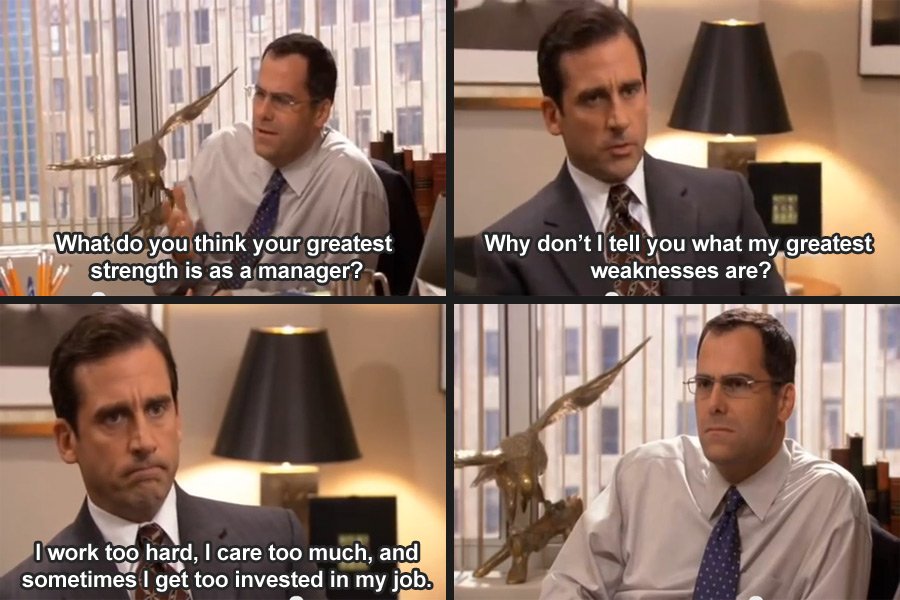A reader asks:
I’m a 31-year-old investment advisor and really enjoy the content you guys put out. I’m wondering if you guys have any advice as relatively young folks in the industry on mitigating the initial momentary flash of panic I imagine some clients feel when they first walk into the room and wonder “is this guy old enough to be giving me investment advice?” Obviously ultimately you build credibility by understanding their financial situation, goals, and circumstances, and providing advice that is helpful and relevant to them. But I know some folks are surprised when a young face rolls in to talk about their investments. So, I thought I’d ask if you had any helpful advice. Sadly I can’t grow much facial hair and rock the 5 o’clock shadow like Ben, and am simultaneously “cursed” with a full head of hair so can’t rock the wise bald guy Michael look either haha.
I feel your pain here. I’m 40 years old, have 3 kids and still get carded on a regular basis. Maybe this is why I’ve been rocking the 5 o’clock shadow in the first place.
One of the first meetings I had with a prospective client when I came to Ritholtz Wealth was with a gentleman in his 50s. He took one look at me and my co-worker Kris and said he was surprised at how young we were.
Our response went something like this:
You’re right. We are probably younger than most advisors you will come across. But we believe that is a benefit to you. We’re creating a financial plan that’s meant to last decades. Your children could be taking it over from you one day. Don’t you want people who are going to be around to see that through?
See what we did there?
Now, it’s also true that we have older advisors on staff. There is no right or wrong age and there is something to be said for both experience and expertise when forming these relationships.
When you’re young or look too young or a combination of both you have to find ways to stand out.
Be so good at your craft that it’s impossible for clients to turn you down. Find a niche area of expertise that forces clients to seek you out. Practice your story enough that it becomes second nature when selling your services.
The point is that you need to turn your weakness into a benefit in some way.

There was a story in Esquire a number of years ago about Channing Tatum (of 21 Jump Street and Magic Mike fame).
Tatum was diagnosed with ADHD as a kid and didn’t do very well in school. Eventually he got a scholarship to play football at Wake Forest but didn’t take it for academic reasons.
Even though he wasn’t very good in the classroom, he learned how to channel his energy through martial arts, which he credits with his successful acting career:
In the afternoons, free of school, he spent untold hours with his martial-arts instructor, a master, tracing shapes in the air until he could feel them notched into the outside of his arms. Until he could feel them without conscious thought. “It wasn’t complicated,” he remembers. “I learned to appreciate repetition. That’s why I can dance. It’s how I learned to act. I have a high tolerance for repetition. And for the first time in my life, I was busy enough that I didn’t want to stop until I got it right. That never happened in school for me. Not once.”
Tatum went to LA with no acting experience whatsoever and became one of Hollywood’s biggest draws at the box office because of his high tolerance for repetition. He turned a weakness into a strength by focusing on what he could control.
Entering high school I probably weighed a buck-twenty and was the shortest kid on my football team. Knowing I was one of the smallest players on the field I spent six days a week in the weight room heading into my junior year and packed on 15-20lbs. of muscle.
I knew guys who were a lot bigger than me who never bothered lifting weights because they didn’t feel it was necessary. These were the players who never got better over time.
I came out of school without great job prospects because I didn’t really know what I wanted to do with my life. When I got my first job in this business it became apparent very quickly how much I still had to learn.
Every conversation I was part of in that first year felt like it was over my head.
So I devoured every book I could read about investing, stocks, bonds, market history and the greatest investors of all time. I took notes on everything and asked my boss a million questions. I overcompensated for my lack of knowledge by learning as much as I could to play catch-up.
The more I learned the more I wanted to continue the learning process. That skill set has benefitted me more than any other in my career.
Obviously, there are bigger issues than looking younger than your age but everyone is dealing with something.
You can either complain about your misfortunes or look for ways to minimize your weaknesses, or better yet, turn them into strengths.
Michael and I tackled this question and much more on this week’s Animal Spirits video:
Subscribe to The Compound so you never miss an episode.
Further Reading:
The Liberation of Limiting Yourself
Now here’s what I’ve been reading lately:
- Rockets and feathers (Modern Money)
- Don’t compare the current housing boom to the last housing bubble (Calculated Risk)
- Peter Lynch on the stock market (TKer)
- Do you need a financial planner? (Oblivious Investor)
- Lessons from 98 year’s of wisdom (AARP)
- Inside Charlize Theron and Tom Hardy’s Mad Max Feud (Vanity Fair)
